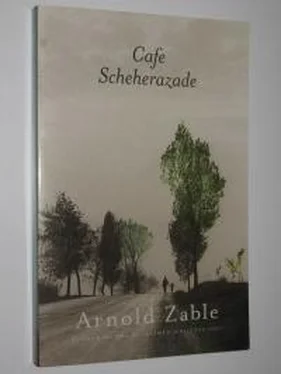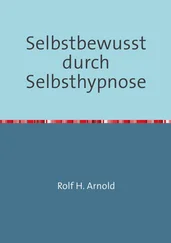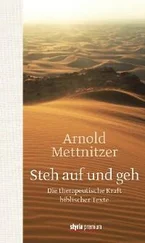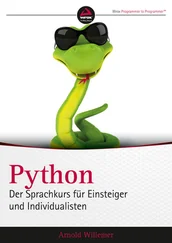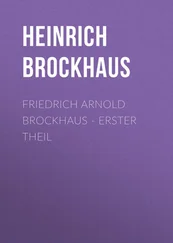Arnold Zable - Cafe Scheherazade
Здесь есть возможность читать онлайн «Arnold Zable - Cafe Scheherazade» весь текст электронной книги совершенно бесплатно (целиком полную версию без сокращений). В некоторых случаях можно слушать аудио, скачать через торрент в формате fb2 и присутствует краткое содержание. Город: Melbourne, Год выпуска: 2001, Издательство: Text Publishing Company, Жанр: Проза, на английском языке. Описание произведения, (предисловие) а так же отзывы посетителей доступны на портале библиотеки ЛибКат.
- Название:Cafe Scheherazade
- Автор:
- Издательство:Text Publishing Company
- Жанр:
- Год:2001
- Город:Melbourne
- ISBN:нет данных
- Рейтинг книги:4 / 5. Голосов: 1
-
Избранное:Добавить в избранное
- Отзывы:
-
Ваша оценка:
- 80
- 1
- 2
- 3
- 4
- 5
Cafe Scheherazade: краткое содержание, описание и аннотация
Предлагаем к чтению аннотацию, описание, краткое содержание или предисловие (зависит от того, что написал сам автор книги «Cafe Scheherazade»). Если вы не нашли необходимую информацию о книге — напишите в комментариях, мы постараемся отыскать её.
Cafe Scheherazade — читать онлайн бесплатно полную книгу (весь текст) целиком
Ниже представлен текст книги, разбитый по страницам. Система сохранения места последней прочитанной страницы, позволяет с удобством читать онлайн бесплатно книгу «Cafe Scheherazade», без необходимости каждый раз заново искать на чём Вы остановились. Поставьте закладку, и сможете в любой момент перейти на страницу, на которой закончили чтение.
Интервал:
Закладка:
Etta approached the seasoned leaders of the Berdichev Bund. She required their support in her efforts to kindle the flame of revolution back home in Tulchin. In response to Etta's request the party sent Yankel Zeleznikow. A good ten years younger than Etta, at eighteen Yankel was already a seasoned cadre and union organiser. In Tulchin Yankel boarded with Etta's family. In time, they became lovers. And by 1910 Etta was expecting a child.
Avram tells the tale matter-offactly. And he is moving fast. I would like to know more about the romance. But Avram is concerned with data, with documenting his parents' heroic deeds in the erratic ebb and flow of history; and he is well prepared for the task. He reaches into his satchel. He covers the table with pamphlets and letters, journals and books, and photocopies of the Yiddish Folkszeitung, the Bund newspaper, announcing the marriage of party comrades Yankel Zeleznikow and Etta Stock.
Neither marriage nor pregnancy slowed the pace of the couple's work for a revolution they believed was pre-ordained. Yankel resumed his activity in the factories of the Ukraine. He urged workers to strike for better conditions, higher pay. One strike veered out of control; a gendarme was killed. The factory owner accused Yankel of the crime. Yankel was arrested and imprisoned in Pinsk. Etta was imprisoned in the nearby city of Kobrin; and it was in prison that their first child, a daughter named Basia, was born.
Avram points to the letters. He extracts a yellowing page. The Hebraic script, penned by Yankel in a prison cell, within days of his arrest, is all but impossible to comprehend.
The letter is addressed to his brother Shlomo in New York. Avram knows the contents well. Yankel agonises over his predicament.
Should a revolutionary rear a family? he asks. When would I have time for a child? For the care and love she needs? And how will the family survive now that I have been sentenced to fifteen years labour so far removed from home?
Etta was released from prison after serving six months; but Yankel was exiled to a Siberian work camp near the city of Irkutsk, on the shores of Lake Baikal. In winter it glistened white, a boundless sheet of compressed ice. In spring it melted into an inland sea of billowing snow. In summer the horizon linked lake and sky in one seamless vista of bleached blues. In the autumn, cold winds heralded another season of stagnant twilights and gale-swept nights.
Yankel laboured and longed for the day when he would return to his grand obsession. Etta journeyed in his wake, thousands of kilometres east, with her new-born daughter, to Irkutsk. She obtained work as a nurse, looked after her infant child, and visited Yankel on the shores of Lake Baikal.
"She always carried the family on her shoulders," says Avram.
"She was always both a breadwinner and revolutionary. She tended her husband, her children, her patients, and her comrades. She made time for everyone."
"And Yankel?"
"He was a professional revolutionary. The party always came first. When I was a child I rarely saw him. He was often absent at night, at a meeting, a conference, a Bund gathering. Sometimes he was away for weeks on end, on missions throughout Poland. He was always on the move, always organising and scheming. When he was in town he would visit me at school, in the mornings, and treat me to breakfast. This was our allotted time together. Of him it was said: `Where he stands he talks, where he sits, he sleeps.`"
"You are jumping ahead now," Masha warns. "One minute we are in Siberia, in Irkutsk, on Lake Baikal, ten years before you were born, and now we are in Vilna twenty years later. Martin will be confused."
But I do not mind. I enjoy the asides. The hours flow through the winter night. Trams glide by, like whispers on wheels. Lights wink from restaurants lining the street. A gentle rain slants down in transparent sheets. And Avram's lilting voice draws me back through the early years of a passing century.
In 1914, Archduke Ferdinand was assassinated in Sarajevo. The tribes of Europe converged upon the battlefields. In the millions they fell, foot soldiers in the service of emperors whose dominions were about to be swept aside. In muddy trenches, amid the stench of decaying flesh, their bodies numb with fatigue, they battled over mere metres of ground. And wherever they fought, they sowed the unmarked graves of countless wasted lives, until those who still remained screamed: "Enough! Let the empire crumble! Let the old order die. We want bread! We want peace!"
In March 1917, Tsar Nicholas was swept aside; and thousands of kilometres to the east, on the shores of Lake Baikal, Yankel Zeleznikow was pardoned and released from his Siberian exile.
Towards the west they journeyed, Etta and Yankel, anxious to rekindle their life's work. They chose Kiev, capital of the
Ukraine, as the city in which to resume their lives. They entered a city draped in red banners and flags. It was the alluring springtime of revolution. A time of soap-box orators, fiery speeches, messianic visions. Fatigued villagers streamed in from the provinces lured by the promise of better days.
But it was short-lived, this interlude of utopian fantasies. The White Armies were on the march throughout the Ukraine. In August 1919, the Red Army retreated from Kiev. Battles raged on the banks of the River Dnieper. Thugs and bandits gained control of the streets.
Events seemed to be careering out of control. The Red Army regained the city in December. Typhus and famine engulfed the land. Revolution gave way to repression. The Red dictatorship took hold, the all-powerful party seized total control; and in 1922 the Bund was banned. Avram's father became a wanted man.
Yankel farewelled his wife and daughter, and fled Kiev in a horse-drawn wagon crowded with books. Russian novelists, French philosophers, Yiddish poets and socialist pamphleteers kept him company as he travelled west, through Poland, in search of yet another home. Wherever he went he was feted by Bund comrades and put up in the homes of fellow cadres. Wherever he journeyed he was assigned urgent missions.
Yankel's life became one extended detour that did not end until he arrived in Vilna. It was in the Jerusalem of Lithuania that Etta and Yankel were reunited, and finally set up a permanent home. And it was in this fabled city where, in 1924, their second child, Avram, was born.
::::::::::::
ii
Like a magnet Scheherazade draws them, cynics and idealists, ageing schemers and dreamers. One by one they enter on a Sunday morning. A typical Sunday. Each newcomer is greeted with a wave of the hand, a raised eyebrow, a familiar routine.
"Sholem Aleichem!"
"Aleichem Sholem!"
"Well? How is it going?"
"As you can see, I am still alive."
"And how are the children?"
"They are so busy I have to make an appointment to see them."
"And the business?"
"The business? it's deep in the ground."
"So? That is where we will all be soon enough."
Rapid-fire conversations echo from all corners of the cafe.
Caffeine courses through the veins. The talk becomes louder, more animated. The chairs extend outwards as the circles expand.
Listen, and you will hear four, five, six voices at a time.
Perhaps you think this impolite, lacking in manners, in style.
But for those who participate this is a weekly simkhe, a celebration, a communal gathering. The babble of voices is an aria to their ears. A full-blown opera, first heard in the towns of their youth, in shtetl cottages, in crowded apartments with whole families packed together in one room.
To be heard was to learn to leap into a discussion, to dart in and out of an argument, to know when to deliver a punchline, an aphorism, a retort, while at the same time keeping an ear upon two, three, four simultaneous conversations, lest a crucial piece of gossip should pass one by.
Читать дальшеИнтервал:
Закладка:
Похожие книги на «Cafe Scheherazade»
Представляем Вашему вниманию похожие книги на «Cafe Scheherazade» списком для выбора. Мы отобрали схожую по названию и смыслу литературу в надежде предоставить читателям больше вариантов отыскать новые, интересные, ещё непрочитанные произведения.
Обсуждение, отзывы о книге «Cafe Scheherazade» и просто собственные мнения читателей. Оставьте ваши комментарии, напишите, что Вы думаете о произведении, его смысле или главных героях. Укажите что конкретно понравилось, а что нет, и почему Вы так считаете.
